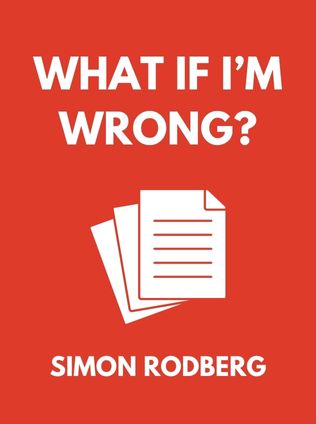
What If I’m Wrong?
and Other Key Questions for Decisive School Leadership
By Simon Rodberg
Published 08/2020
About the Author
Simon Rodberg is a strategy consultant and leadership coach who teaches educational leadership at American University. He was the founding principal of DC International School (DCI), a public charter school in Washington, D.C., and has held roles as an assistant principal, district official, and teacher in D.C. and Massachusetts. DCI earned accolades such as “best middle school” and “best high school” in the Washington City Paper poll. Rodberg's writings have appeared in prominent publications including Educational Leadership, Harvard Business Review, Principal Leadership, Principal magazine, and The New York Times.
Rodberg's extensive experience in various educational roles has provided him with deep insights into the complexities of school leadership. His work emphasizes the importance of reflective practice and continuous improvement, which are central themes in his book, "What If I’m Wrong? and Other Key Questions for Decisive School Leadership." Rodberg combines practical advice with research-based strategies to help school leaders navigate the myriad challenges they face.
Main Idea
"What If I’m Wrong? and Other Key Questions for Decisive School Leadership" by Simon Rodberg emphasizes the importance of reflective questioning for school leaders. Rodberg suggests that by focusing on a small set of crucial questions, principals and administrators can navigate the complex challenges they face, make better decisions, and lead more effective schools. The book leverages insights from cognitive science and organizational theory to help leaders overcome snap judgments, avoid groupthink, and challenge conventional practices.
The book's main idea revolves around the concept that effective decision-making in school leadership requires a deep understanding of the underlying issues, a willingness to question assumptions, and the courage to make bold decisions. Rodberg provides a framework for asking the right questions to gain clarity and direction, ultimately leading to more thoughtful and impactful leadership.
Table of Contents
- Introduction: The Need for Effective Decision-Making
- What Am I Missing?
- What’s One Small Step?
- Where’s the Trade-Off?
- Does It Have to Be This Way?
- What If I’m Wrong?
- Conclusion: Building a Culture of Reflective Leadership
Introduction: The Need for Effective Decision-Making
School leadership is about making things happen, from achieving high test scores to creating supportive communities. However, the path to success is often complex and fraught with difficult decisions. Rodberg highlights the importance of thoughtful decision-making and reflective questioning to navigate this complexity effectively.
"Thinking is crucial for principals who need to decide—or need to lead their community to decide—what a great school is and how to foster happiness and productivity in their students." - Simon Rodberg
Rodberg explains that the role of a school leader involves managing multiple priorities and making decisions that have far-reaching consequences. The introduction sets the stage for the rest of the book by emphasizing the critical nature of decision-making in educational leadership. Rodberg introduces the concept of reflective questioning as a powerful tool for improving decision-making processes and outcomes.
What Am I Missing?
Rodberg emphasizes the importance of understanding the full landscape before making decisions. He suggests using tools like surveys, focus groups, and stack audits to gather comprehensive information and avoid biases.
Sign up for FREE and get access to 1,400+ books summaries.
You May Also Like
The Subtle Art of Not Giving a F*ck
A Counterintuitive Approach to Living a Good Life
By Mark MansonRich Dad Poor Dad
What the Rich Teach Their Kids About Money - That the Poor and Middle Class Do Not!
By Robert T. KiyosakiHow To Win Friends and Influence People
The All-Time Classic Manual Of People Skills
By Dale CarnegieI Am Malala
The Story of the Girl Who Stood Up for Education and Was Shot by the Taliban
By Malala YousafzaiQuiet: The Power of Introverts
The Power of Introverts in a World That Can't Stop Talking
By Susan Cain



















